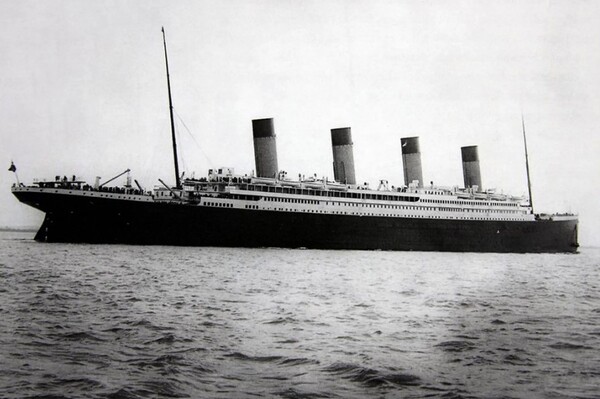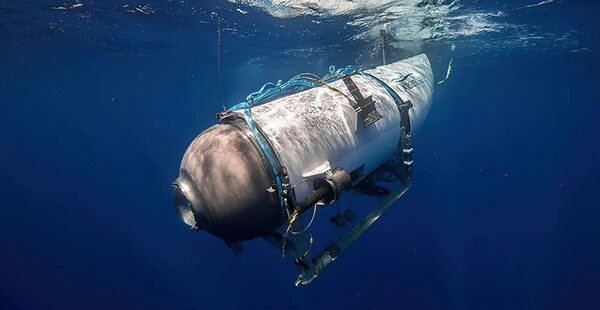
After a Century
Two intertwined tragedies happened with a gap of 111 years. On April 14, 1912, the Titanic sank into the cold ocean with 1,500 of its 2,200 passengers, including Captain Edward Smith. On June 18, 2023, all passengers of a submarine, which dived into the ocean to observe the wreckage of that very famous passenger ship, disappeared. James Cameron, who produced the movie The Titanic, said that the accident had a strange similarity to the previous sinking. To be specific, Captain Smith was repeatedly warned of icebergs, but he ignored the warnings and sailed at full speed, killing many people. Fast forward to modern day, someone ignored the risk of an accident, causing another tragedy in the same waters. “OceanGate,” the operating company behind the aforementioned submarine, Titan, had passengers sign an exemption document stating that the company would not take responsibility even if they died. It is not uncommon for wealthy people to spend money on risky and luxurious high-risk tours. “Extreme Adventure” tours for the rich, such as swimming with sharks, direct travel to active volcanoes, Antarctic navigation products, and space travel, have become an industry. What psychological reasons are behind this motivation to deliberately travel towards physical hazards? What is the current stance of “high-risk tourism?”
Titan Sinking to the Titanic
The U.S. Coast Guard officially announced that the structure of the Titan submarine collapsed shortly after its operation due to strong external water pressure. A secret acoustic detection system developed by the U.S. Navy to detect enemy submarines dispatched abnormal signals. These signals were suspected to be Titan’s implosion, and hence began the search. Canada, the UK, and France participated in the search, but the U.S. Coast Guard officially announced that it is estimated that all five Titan crew members passed away. This estimation was based on the discovery of five pieces of Titan’s debris, 488 meters in the front of the Titanic.
The wreckage of the Titanic lies about 4,000 meters on the sea floor, and at such a depth, humans would be under about 389 times more pressure than the water’s surface. In particular, in the deep sea which is completely dark without sunlight, it is impossible for humans to detect anything due to high water pressure, blocked vision, and extremely low temperatures. Under such circumstances, the U.S. submarine exploration company OceanGate operated a 6.7-meter-long submarine that accommodated up to five people. Passengers paid $250,000 per person and signed the aforementioned exemption document that would not hold the operator responsible in the event of physical injury, disability, trauma, or death upon boarding. The high-risk tourism industry swapped for scarcity and safety, is on the brink. OceanGate is not registered with any U.S. agency because the location of the Titanic is in the middle of the Atlantic Ocean. This means that Titan did not need permission to operate, and related regulations were not binding. Who, then, should be responsible for accidents caused by loopholes in industrial regulations? The high-risk tourism industry, which has high scarcity with passenger safety as collateral, is the same as the new production industry in terms of regulatory maturity.
Why Do People Fall Into Hazards Voluntarily?
Why do the rich become caught up in the sea, outer space, and other adventurous situations? There are several main reasons for paying a high cost and taking a life-threatening trip for entertainment. First, the individual propensity to pursue stimulation is a motive.

Lee Hoon, a Professor of the School of Tourism at Hanyang University(HYU) described the relationship between stimulation and trip. If the daily stimulus given to individuals is excessive, they will pursue a trip to “rest” because the motivation is to lower the stimulus. On the other hand, one would opt to go on a trip that pursues high stimulation at a time when daily stimulation is lower than expected or desired. An example of the latter is adventurous entertainment such as extreme sports, which represents the wealthy rather than the general consumer class. Second, the motivation to pursue extravagant leisure also comes in the picture. According to Sociologist Veblen’s “conspicuous leisure class,” there are groups that are economically free enough to express and show off through consumption. The Titan submarine’s passengers had to pay an astronomical amount of money for the trip, which means very few people could actually experience it. Therefore, the motivation was, in high possibility, a combination of experience-oriented value consumption characteristics along with showy consumption characteristics.
In general, according to Psychologist Maslow’s “hierarchy of needs,” the human need for security overrides the need for self-actualization. Yet, Maslow’s theory did not seem to hold true for this group. Why did the Titan passengers sign a document relieving OceanGate of responsibility for their mental and physical injuries? Did they really value the desire to resolve curiosity over the desire for survival?

Kim So-hye, a Research Professor at HYU’s Tourism Research Institute, argued that the act of signing an exemption document by passengers should be seen as a simple courtesy act. “Even if one signed the ‘Do not blame the submarine operator for my death’ document, that does not mean my two desires for amusement and survival are equally sized. Maybe it is because the passengers thought that the signing process was inevitable to get on the submarine, or they felt peer pressure.”
New Type of High-Risk Tourism: Space Tour
Like ocean exploration, space travel is one of the most popular forms of high-risk tourism. Space travel is also rare due to its high costs, so the industry grows around private companies. Meanwhile, voices are growing over the need for regulations as the space tourism company “Virgin Galactic” successfully completed preparations for commercial flight services, this June. If there are too many private companies in the industry, the gap between regulations and reality will inevitably widen.

An Hyoung-joon, the Head of the Research Team Two at Korea Space Policy Research Center, explained, “When developing technology in the industry, a social system must be established to support it. The so-called ‘system building’ is essential to create a system in which society itself supports technology together rather than focusing only on regulations established by the government. This is because technology and society are not independent.”
In Korea, laws are enacted by the National Assembly and enforced by the government. As a result, companies that want to try new businesses lobby lawmakers for the institutional part that will be the basis for them, or new regulations will be created due to practical problems in the process of operating the market. However, in particular, the speed at which regulations support the reality of high-risk tourism such as ocean exploration and space travel is significantly slower. Researcher An explained that the reason is that high-risk tourism was excluded from the priority of Korean legislation. This means that laws on technology that are relatively close to citizens’ lives, such as drone taxis and self-driving cars, should be enacted first. Amid the tension between regulations and reality, can we assure another company would not use tourists’ desire for adventure as a reason for their immunity? Experimental attempts and avoidance of regulations are hindering healthy industry growth.
For Qualitative Growth: the Balance
If society’s admiration and desire for the dangerous tourism industry cannot be stopped, we must come up with tactics to develop safety within it. Experts say that tourism demand in areas that are difficult for the general public to access, such as marine exploration and space tourism, has contributed significantly to the development of technology and systems in related industries. However, free development can cause losses. Stockton Rush, the CEO of OceanGate, regularly expressed distaste about regulations, saying, “They can hinder the industry’s growth.” Nevertheless, if an industry cannot technically guarantee the safety, let alone the lives of consumers, it would be rational to prohibit the technology. Regulatory balance is essential for the growth of industrial quality.


